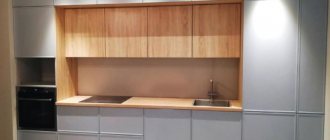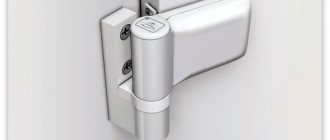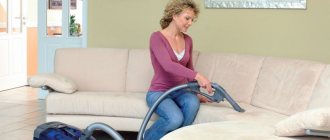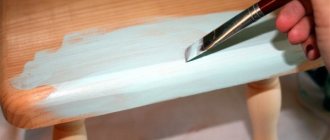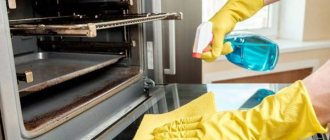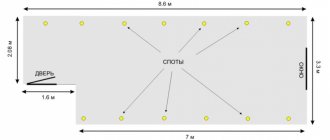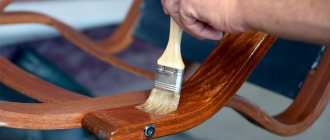The new kitchen, made of plastic facades, looks modern and beautiful. Today this interpretation is one of the most popular. The kitchen can be made in any color scheme and to suit different interiors.
The main task after purchase and installation is careful care and operation of the headset. This way it will last longer and will not lose its original appearance.
Since the kitchen is a fairly active area, quite a lot of pollution occurs there. When cooking and washing dishes, plastic facades quickly get dirty. This becomes very noticeable. The facade has a glossy finish, which reflects all fingerprints, drops and other traces. If you have time, it is better to walk over the façade with a slightly damp microfiber cloth after each cooking or after washing dishes. This way, all light dirt will be washed away and the kitchen set will be cleaned.
What not to clean the kitchen
Plastic, even the strongest and most durable, is a rather inert material, but at the same time porous. This combination limits the choice of care products; otherwise, you will have to update the set after several cleanings.
- It is strictly forbidden to wash facades finished with any type of plastic with abrasive agents. The substance scratches and damages even the most durable surface - for example, steel, let alone plastic. This cleaning method is especially bad for glossy kitchens.
Abrasives include both preparations containing solid particles and tools - metal brushes, sponges, etc.
- Do not use chlorine-containing substances. Even in cases where you need to clean old grease stains with your own hands. Chlorine destroys the coloring pigment, and the plastic loses its color and shine, and eventually deteriorates.
- It is undesirable to use alcohol-based medications. At the same time, glossy facades in the kitchen quickly fade, and matte ones take on the appearance of being dusted with dust.
- Do not use aggressive household chemicals intended for washing stoves, plumbing fixtures, ovens, and so on. The formulations often contain very potent ingredients.
- A general requirement when caring for kitchen furniture is keeping it dry. Constant contact with water is even more destructive than splashes of hot fat or dye. Therefore, the best way to care for a plastic kitchen with your own hands is to immediately wipe off dirt with a dry or slightly damp cloth made of flannel, plush or microfiber.
How to remove grease stains
If you cook on the stove, then oil splashes will inevitably fall on the countertop, wall panels and facades. A water solution of liquid detergent helps to clean matte kitchen facades from greasy stains.
- Add a few drops of shampoo or gel to a container of water and stir thoroughly;
- Apply the composition and see how the stains behave;
- Make sure surfaces are clean and dry with a soft cloth.
It's not just grease stains that remain on kitchen furniture. Stains left by:
- splashes of water;
- tea and coffee;
- red wine;
- turmeric;
- beet and tomato juice;
- juices from berries;
- tobacco smoke.
Traces are especially noticeable on light-colored facades and countertops; if quickly detected, they can be easily washed off with water. Over time, they eat into the surface, and to remove them requires special means and time. In such cases, it is better and safer to use an alcohol solution.
Care of laminated surfaces
Of all the types of plastic finishes, lamination is the least durable. Whether melamine film or PVC film is used for this, the result is the same: the coating is not resistant to mechanical damage and aggressive substances, so cleaning the kitchen set is not so easy.
- The best and almost universal remedy is warm water and soap. Baby soap is used as a washing component, since it is guaranteed not to contain fragrances or “extra” additives, or dishwashing gel. The latter is effective in the fight against fat, as it includes ingredients that dissolve fat and oil. This is the easiest way to “update” your headset.
The solution is prepared literally “by eye”. The optimal composition foams slightly, but removes dirt well.
To wash the facades, use a soft sponge or a soft cloth - flannel, microfiber. For heavy dirt, you can use a special soft brush.
- Pre-wetting of contaminants is not allowed - prolonged contact with water has a negative effect on the plastic. You can wash longer or increase the pressure slightly.
- If the grease is absorbed, then in order to wash the stain, use cleaning agents that include ammonia. This is a fairly weak alkali that can be used to wash off grease without causing damage to the plastic. Products containing alcohol and acids are excluded.
- To clean kitchen furniture, you can use many ready-made care products - “ABC of Cleanliness”, “Grosh” and so on. This preparation can be used with preliminary wetting. The holding time is specified in the instructions. To clean the kitchen without leaving streaks, after washing, you should clean the facades with a sponge soaked in clean water and always with a dry cloth. You also need to take care of the furniture from the inside: drawers and shelves also need to be washed with warm soapy water and wiped clean with your own hands. At the same time, pay attention not only to dirt, but also to the smell: the latter can be removed by wiping the box with a rag soaked in a vinegar solution and leaving the set open for ventilation.
How to properly wash MDF panels
Housewives who have MDF facades or glossy panels are often interested in how to properly care for them. Furniture of this type is difficult to clean. It can be washed with any cleaning agents and detergents, except those containing chlorine or abrasives. It is recommended to use kitchen sponges to scrub stains. You should not use pipe cleaners or brushes, especially if the surface is light. Afterwards, there may be scratches left on it that will be noticeable. You should also be careful with gloss. You need to wipe it smoothly and without pressure.
Many people, sharing their experience, claim that for such surfaces there is nothing more effective than a regular soap solution. It is recommended to use porous foam, which better destroys the fat layer. You can also wipe the panels with dishwashing detergent immediately after cooking. This way you will keep the facades fresh longer, and they will look proper.
After cleaning, it is recommended to wipe or spray a fiberboard or natural wooden surface with a polish, which tends to cover it with a special protective layer that prevents the rapid accumulation of dust.
It is easy to wash glossy or wooden surfaces using an alcohol solution in a 1:1 ratio with water. You can also make a “powerful” homemade composition. You just need to mix lemon zest or juice with vinegar and a few drops of alcohol. This will be a very effective fat remover.
In conclusion, it should be noted that housewives often face difficulties in cleaning the kitchen. To prevent cleaning kitchen surfaces from becoming an overwhelming task, wash this area regularly, preventing stains and dirt from drying out and turning into multi-layered formations.
Caring for glossy surfaces
The appearance of glossy surfaces has to be “updated” much more often. The shiny plastic shows traces of grease even from the touch of your fingers. However, such a surface is easier to clean.
- Do-it-yourself major cleaning is carried out regularly and in exactly the same way as in a kitchen with laminated facades. However, in this case it is impossible to remove grease using products containing ammonia: ammonia will “eat” the gloss.
- To clean such a kitchen without streaks, be sure to use a completely dry cloth at the end of cleaning.
- But for daily cleaning, special care products or glass cleaning products are used. The latter perfectly remove grease from a glossy surface, which allows you to update the appearance of the facade at any time.
- To restore the shine of a glossy kitchen, it is best to use a special polish and a microfiber cloth.
Daily care and prevention
To maintain the neat appearance and shine of kitchen furniture, regular care and compliance with certain operating rules are necessary:
- After cleaning, the surface should be wiped dry, because due to excess moisture the material swells, mold may appear on it, and the PVC may peel off.
- It is recommended to install the headset in a place where there is no direct sunlight. Under the influence of ultraviolet light, the color on facades may lose saturation.
- Highly concentrated detergents must be diluted with water.
- When exposed to high temperatures, plastic becomes more flexible and expands. To prevent deformation, washing should be done with water at a temperature no higher than 40°C.
Many owners of glossy kitchen furniture recommend cleaning regularly using professional detergents to prevent stains from grease and other food from drying out.
How to update a plastic kitchen
Sometimes, despite all efforts, and sometimes thanks to them, plastic kitchens lose their attractiveness. Discolored spots, traces of dyes or touches of hot objects, traces of grease, and so on appear. You can cope with this problem with your own hands.
- You can radically update and replace the appearance of your kitchen using self-adhesive vinyl film. The material is simply glued to smooth facades. The film is very diverse: the color, the pattern, and even the texture can be chosen differently. It is as easy to care for as regular PVC film.
- You can update the look of the facade by gluing the molding yourself. Whether or not to paint the set depends on the chosen solution.
- A glossy kitchen can be updated using a special polishing paste: it completely removes scratches, abrasions, traces of grease and soot. You can save money and use regular tooth powder for polishing yourself - the result is the same.
Caring for a plastic kitchen is not difficult, you just need to follow a few simple rules: avoid prolonged contact with water and grease and wash with products that do not contain abrasive substances.
Summary
Caring for modern furniture is not difficult; it is important to choose the right cleaning product and follow some rules. And the videos posted on our portal will help you understand the nuances. After washing the furniture properly, you can think about the next question - how to clean the pipe in the kitchen?
Did you like the article? Subscribe to our Yandex.Zen channel
Great article 0
What products will help you keep your kitchen clean?
A beautiful kitchen that pleases the eye after renovation - it seems that it will always be like this. Alas, it won’t happen if you don’t keep the work area clean and properly care for the facades and apron. To make things easier for you, we have collected the most useful tips in one article.
How to care for facades made of different materials?
The easiest way to keep matte facades clean is without milling and without wood texture. On a smooth surface, dirt and dust do not linger - they can simply be wiped with a microfiber cleaning cloth or a special napkin. Glossy facades are a little more difficult - they are easy to clean, but you will have to do it more often because of fingerprints. The most difficult to maintain are facades with milling and chamfers, in the recesses of which dirt accumulates.
What products are suitable for cleaning plastic surfaces?
If you organize reasonable and timely care for your plastic kitchen, it can last for quite a long time, delighting its owner with cleanliness and shine. Plastic is an unpretentious material, caring for it will not take much time and effort, but it is still worth remembering that the process of cleaning the surface must be correct and careful - otherwise the finish will require updating much earlier than the deadline stated by the manufacturer.
What should not be used to wash a plastic headset?
Before purchasing a detergent, pay attention to the instructions - it indicates the type of surface for which it is intended.
There is a list of products that cannot be used to clean a plastic kitchen:
- Plastic facades do not tolerate washing with chlorine-containing products - do not resort to their help even if you need to wash the surface from a large number of greasy stains. Chlorine-containing products tend to discolor the surface; after several such procedures you will have to renew the façade;
- Do not use aggressive products intended for cleaning ovens, stoves and plumbing fixtures. Under their influence, the facade will become covered with cloudy stains that cannot be washed off, and over time it will lose its shine and brightness of colors;
- Polish containing wax is also not suitable for caring for plastic products - such aerosols are indispensable in caring for painted or polished wooden surfaces, however, they can only harm plastic. After applying such products, the surface becomes sticky, dirt clings more strongly - the “protective” layer of wax is even more difficult to wash off than greasy stains after cooking;
- Alcohol-containing products are also not suitable for cleaning surfaces made of plastic. Plastic facades, especially those with a glossy finish, become dull when exposed to alcohol.
Before using a surface cleaner, give it a test drive. Apply the product to the area of the plastic that is hidden from view. If the surface becomes dull or becomes covered with cloudy stains, stop using it so as not to spoil your kitchen set and your mood.
Plastic is a material that is quite difficult to damage with an abrasive agent, however, over time, it wears out the surface, making it cloudy and less smooth, which means it will become more and more difficult to care for it. For the same reason, sponges made of hard material are not suitable.
Complex contaminants
In addition to the usual stains of grease and dirt, there are also complex stains on plastic panels that are difficult to deal with ordinary detergents. These include residual sealant, marker, ink, severe rust, and brilliant green. They are more difficult to remove, but still possible.
Rust and limescale
Rust on a plastic panel is usually formed from corrosion of old pipes. Limescale deposits occur in the bathroom due to exposure to hard water. You can get rid of these contaminants by the following means:
- acetic acid;
- hydrochloric acid;
- a mixture of ammonia and peroxide (1:10);
- lemon juice;
- "Domestos";
- universal cleaner "Mr. Muscle."
Attention! Rust and lime cannot be removed from plastic with iron scrapers, hard brushes, acetone, or caustic chemicals.
Tobacco smoke
In rooms where people smoke, plastic panels quickly become yellow and have an unpleasant odor. If you don’t clean them for a long time, then it will be very difficult to get rid of nicotine deposits. Traces of cigarette smoke from surfaces can be washed in several ways:
- Prepare a mixture of 50 ml of white and 10 liters of water. Moisten a soft cloth with it and wipe the plastic evenly, in one direction, so that there are no streaks left.
- If the plastic panel is plain, has no patterns and is not made in bright colors, it can be washed from tobacco smoke using vinegar and vodka. You need to moisten a foam sponge in the prepared solution and carefully wipe the yellowed areas with it. After processing, the plastic should be rinsed with water and dried.
- The easiest way to remove nicotine from plastic panels is to use a melamine sponge. It needs to be moistened with water and wiped off the problem areas.
- You can also wash plastic from tobacco deposits with soapy water. It should be prepared from water and grated soap with a low alkali content. Moisten a rag with the resulting liquid and wipe the dirty area.
Zelenka
The green stuff is quite difficult to remove. A regular cleaner does not always cope with such stains, especially old ones. If the plastic is white and plain, then it can be washed with a chlorine-containing substance in a matter of seconds.
If the plastic panel is colored, then a fresh stain from the green paint can be removed with washing powder, soap solution, kerosene or gasoline. The last two liquids should be used in minimal quantities in a well-ventilated area. If there are children or animals in the house, then gasoline and kerosene are not recommended.
Sealant
Traces of sealant on the plastic are washed with a solution of ammonia. It is necessary to dilute 20 ml of ammonia in water (1 liter) and treat problem areas with this liquid. Next, you need to rinse the plastic with water and dry it.
Markers
When there are children in the family, housewives often have to struggle with children's works of art on the walls and furniture. Felt pens, markers and even pens can be washed well with sulfur matches. To do this you need:
- Remove sulfur from several matches and soak it in a small amount of water for 15 minutes. It should turn into mush.
- The prepared product should be applied to the painted area of plastic and left for 10 minutes.
- Rinse off any remaining paste with water and wipe the plastic dry.
Plastic panels are an undemanding, weather-resistant material that is easy to care for. It is enough to wipe its surface at least once a month with detergent. If contamination appears, then it is quite possible to deal with it using improvised means.
The best remedy for pollution is regular care
It is very important to clean dirt regularly, especially if it is light colors and MDF kitchen facade. Drops of grease and dirt can quickly be eaten away and then more aggressive means and efforts on the part of the housewife will be needed to clean the surface. It is worth remembering that abrasive agents and aggressive components have a very negative effect on the finish of the MDF facade; they corrode and damage the paint and film on the plastic coating. Therefore, the rule here is that it is better to wash more often with light products rather than rarely with aggressive and strong ones.
Products that should not be used for cleaning plastic kitchens.
After using some “elixirs,” the hostess’s mood may “deteriorate”:
- As you know, cleaning plastic with abrasive agents can ruin the appearance of the façade of the furniture. Cleaning with such methods, in combination with hard sponges, leaves scratches on the surface. And after a while, further cleaning of the kitchen becomes difficult. Since the smoothness of the surface deteriorates during friction.
- Many housewives are afraid of germs and use chlorine-containing products. But for cleaning plastic, this option is not acceptable. Because due to the use of chlorine the colors become faded. And in some places, after such cleaning, unsightly stains remain.
- The use of polishing agents in cleaning makes surfaces sticky, which promotes the adhesion of unwanted dirt particles.
- If you wipe the surfaces of kitchen plastic with substances that contain alcohol, the colors may deteriorate and fade.
- And cleaning products for stoves and plumbing, when used on plastic, leave indelible streaks and stains.
